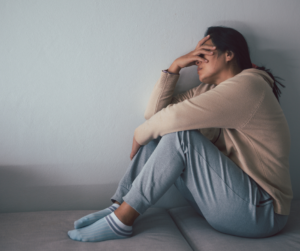In today’s fast-paced world, it’s not uncommon to experience feelings of anxiety. From work deadlines to social pressures, many factors can contribute to this pervasive mental health condition. Understanding anxiety symptoms is crucial for recognizing when you or someone you know may be struggling and seeking appropriate support. In this comprehensive guide, we’ll explore the various manifestations of anxiety, shedding light on its complexities and offering practical strategies for managing it effectively.

Anxiety is more than just feeling stressed or worried; it’s a persistent and often overwhelming sense of unease that can interfere with daily life. While occasional anxiety is a normal part of being human, chronic or severe anxiety can be debilitating. It’s essential to recognize the different types of anxiety disorders and their associated symptoms.
Types of Anxiety Disorders:
- Generalized Anxiety Disorder (GAD): Individuals with GAD experience excessive worry and anxiety about various aspects of life, such as work, health, or relationships. Physical symptoms may include restlessness, fatigue, muscle tension, and difficulty concentrating.
- Panic Disorder: Panic disorder is characterized by recurrent panic attacks, which are sudden and intense periods of fear or discomfort. Symptoms may include heart palpitations, sweating, trembling, shortness of breath, and feelings of impending doom.
- Social Anxiety Disorder: People with social anxiety disorder have an intense fear of social situations, leading to avoidance behaviors. Symptoms may include blushing, sweating, trembling, and difficulty speaking in social settings.
- Specific Phobias: Specific phobias involve an irrational fear of a particular object or situation, such as heights, spiders, or flying. When exposed to the feared stimulus, individuals may experience intense anxiety or panic.
Anxiety symptoms can manifest in various ways, affecting both the mind and body. Common signs of anxiety include:
- Persistent worrying or rumination
- Restlessness or irritability
- Difficulty concentrating
- Muscle tension or trembling
- Fatigue or difficulty sleeping
- Rapid heartbeat or shortness of breath
- Gastrointestinal issues such as stomach pain or nausea
It’s essential to pay attention to these symptoms, especially if they persist over time or significantly impact daily functioning. Consulting with a mental health professional can help determine whether these symptoms are indicative of an anxiety disorder and develop a personalized treatment plan.
While anxiety disorders can feel overwhelming, there are effective strategies for managing symptoms and improving overall well-being. Here are some practical tips for coping with anxiety:
- Practice relaxation techniques: Deep breathing, progressive muscle relaxation, and mindfulness meditation can help calm the mind and reduce anxiety.
- Maintain a healthy lifestyle: Regular exercise, balanced nutrition, adequate sleep, and avoiding substances like caffeine and alcohol can support overall mental health.
- Seek support: Don’t hesitate to reach out to friends, family members, or a therapist for support and guidance. Talking about your feelings can provide relief and perspective.
- Challenge negative thoughts: Identify and challenge irrational or unhelpful thoughts that contribute to anxiety. Replace them with more balanced and realistic perspectives.
- Set boundaries: Learn to say no to obligations or activities that cause unnecessary stress. Prioritize self-care and focus on activities that bring joy and fulfillment.
Understanding anxiety symptoms is the first step toward effectively managing this common mental health condition. By recognizing the signs of anxiety and implementing practical coping strategies, individuals can regain a sense of control and improve their overall quality of life. Remember, you are not alone in your struggle, and support is available.
Together, we can navigate the complexities of anxiety and cultivate resilience and well-being. Remember, you are not alone in your struggle, and support is available. Together, we can navigate the complexities of anxiety and cultivate resilience and well-being.
I can help free you from anxiety while significantly boosting your self-esteem. Get a free copy of my program, The Power of Your Unconscious Mind – https://www.practiceamplifier.com/powermind
